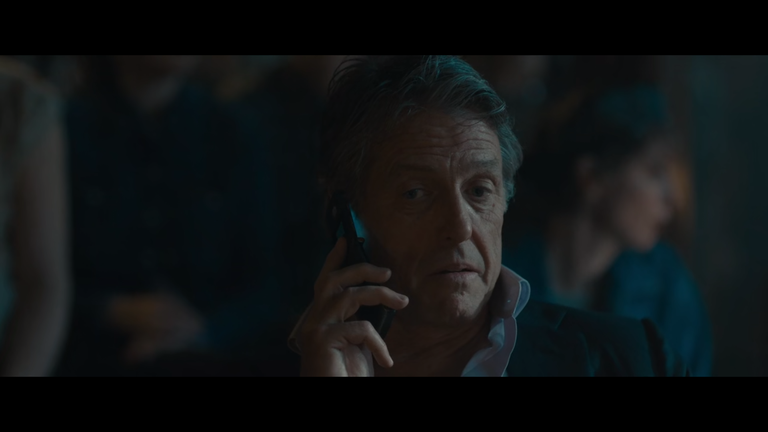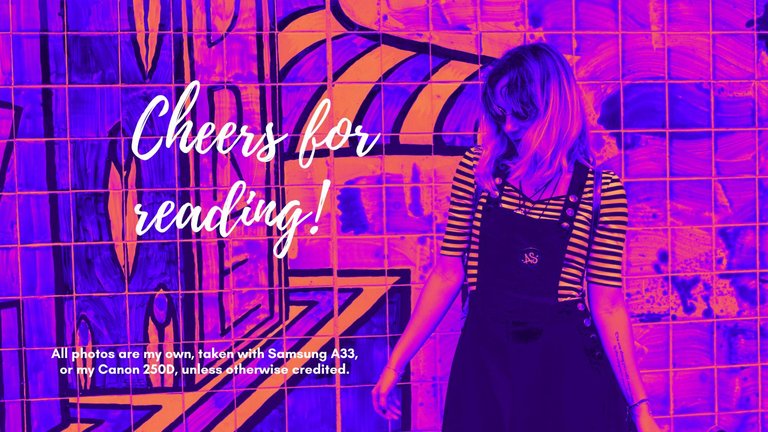I loved Bridget Jones when I was a kid (long before we actually understood what the films were properly about or any of the implications). It's fun coming back to films you loved as a kid and realizing what they were actually saying, how it feels, etc. Anyway, when I heard they were making a fourth movie, I'll admit I was low-key kinda thrilled. Even though I intuited it would be disappointing. Something about coming back.

Though to its credit, the fourth and final installment in the saga, Bridget Jones: Mad About the Boy manages to lead us off into an ending for the hapless heroine quite well. It's certainly got some bittersweet moments and meditations on grief, without becoming too tragic. A lot of nods to the iconic first film which are starting to drag, to be honest, but all in all, a nice enough viewing.
I was happy that although it plays into the over-done "older woman, young hunk" category that seems to be taking over Hollywood under the guise of feminism, it eventually casts off that false path for dear Bridget. Personally, I fail to see how it's supposed to be empowering (or particularly feminist) telling middle-aged women that they can totally score good-looking men 20-30 years younger and should. I get the appeal of eye-candy and I feel immensely for all women in a society that still largely paints this picture of worthlessness and disenchantment once you pass peak fertility. I do think we need more material combatting the notion that once your reproductive years are past, you're of no use to society. I just don't think hooking up with some guy young enough to be your kid is the way to do it.
Especially since it creates a false expectation there. Much as Renee Zellweger and Nicole Kidman might "pull" a young hottie, it's not the case for the vast majority of women in their 50s (and really, why would you even want that? Hot bodies and virility aside, so many young men today are awful).
I also don't like anything that masquerades as feminist that would be cringe and creepy on the other foot. Namely, if it was a movie about a 50-something widower getting together with an attractive young woman, the media would soon enough label the movie as creepy and toxic. Only last year, Anne Hathaway's "The Idea of You" (older woman-younger man) was lauded as empowering and you-go-girl, while "Miller's Girl" (older man-younger woman) was considered cringe.
It's either creepy for both genders, or for neither.
(Not to mention, you know, the latter is much likelier to occur simply on account of how we're built).
But in the end, Bridget reaches the rather satisfying conclusion - through the voice of the superb Emma Thompson - that a boy toy isn't going to solve her problems or fix her grieving for poor, dead Mr. Darcy. In the end, predictably, Bridget finds more durable happiness with her kid's science teacher, Mr. Something-or-Other.
It's more appropriate - and feminists will often bark at that, but it's got nothing to do with her being an older woman. At the end of the day, those two decades between our dear Bridget and young whatever-his-name-was constitute an important difference. She has had numerous life experiences that he has not, is in a different place with his whole life ahead of him, his education incomplete, his children still to be born.
Because while relationships with vast age differences can survive and even thrive sometimes, more often than not, the "appropriate" conclusion is the one Bridget herself reaches. Just because you're only a moment in someone's life doesn't make it less meaningful or worthwhile.
As long as you're not dead, it's still early enough
A far more interesting plot line for me was the conclusion of Daniel Cleaver's own saga. As if to disprove myself just now, I can't resist this older Hugh Grant. But it follows an interesting, again predictable storyline - a lifelong serial playboy who reaches his 60s to find himself no longer able to play (and with nothing to show for it).
To save Daniel from being too depressing, the creators squeeze in a son from some previous liaison (unmentioned throughout the other films) that Daniel's grown estranged from, but at Bridget's behest, reaches out to in the end.
Sitting in the hospital after a health scare, we see a somber Daniel mulling over the "glory of what might have been". And yet, as Bridget reminds him, as long as he's not dead yet, it doesn't have to simply be a "might have".
So often in life, particularly in parent-child relationships, we get hung up on proving points and past hurts. Obviously, in the real world, it's unlikely that a long-abandoned son would happily accept his father in his life just like that, but it's a good message. Much more so than messing around with young hotties (of either gender).
It's not worth it, getting hung up on past hurts or silly differences. On rash words and bitter arguments. Because as far as we know, it's only just today you're not dead yet. That you and your loved ones are still here. It feels to me there's far too many families torn apart, at a stalemate of not speaking to each other who all too quickly forget that.
Should you see it? I don't know. If you love the others, sure. Otherwise, not particularly.

I haven't seen it, I've read a couple of reviews and I like that at the end Bridget's character is a mature woman who knew how to choose, that they will show her evolution in time and how she changed from the first to the last movie, I still have to see the third and fourth, but I know I won't be disappointed.
@honeydue 😉
!BEER
View or trade
BEER.BEERHey @honeydue, here is a little bit of from @soyunasantacruz for you. Enjoy it!BEER at dCity game to buy cards to rule the world.Did you know that <a href='https://dcity.io/cityyou can use
Our beloved protagonist always gives us excellent movies.